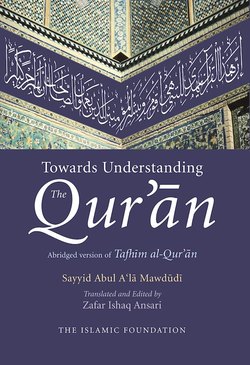Читать книгу Towards Understanding the Qur'an - Sayyid Abul A'la Mawdudi - Страница 199
На сайте Литреса книга снята с продажи.
ОглавлениеAl-Nisa’ 4: 11
(11) Thus does Allah com- mand you concerning your children: the share of the male is like that of two females.7 If (the heirs of the deceased are) more than two daughters, they shall have two-thirds of the inheritance;8 and if there is only one daughter, then she shall have half the inheritance. If the deceased has any offspring, each of his parents shall have a sixth of the inheritance;9 and if the deceased has no child and his parents alone inherit him, then one-third shall go to his mother;10 ▶
7 Since Islamic law imposes greater financial obligations on men in respect of family life and relieves women of a number of such obligations, justice demands that a woman’s share in inheritance should be less than that of a man.
8 The same applies in the case where there are two daughters. If the deceased leaves behind only daughters, and if there are two or more daughters, then they will receive two-thirds of the inheritance and the remaining one-third will go to the other heirs. But if the deceased has only one son there is consensus among jurists that in the absence of other heirs he is entitled to all the property; but if the deceased has other heirs, he is entitled to the property left after their shares have been distributed.
9 If the deceased leaves any issue each of his parents will receive one-sixth of the inheritance irrespective of whether the issue consists either only of daughters, only of sons or of both sons and daughters, or just one son or just one daughter. The remaining two-thirds will be distributed among the rest of the heirs.
10 If there are no other heirs than the parents, the remaining two-thirds will go to the share of the father; otherwise two-thirds will be distributed between the father and other heirs.
150
